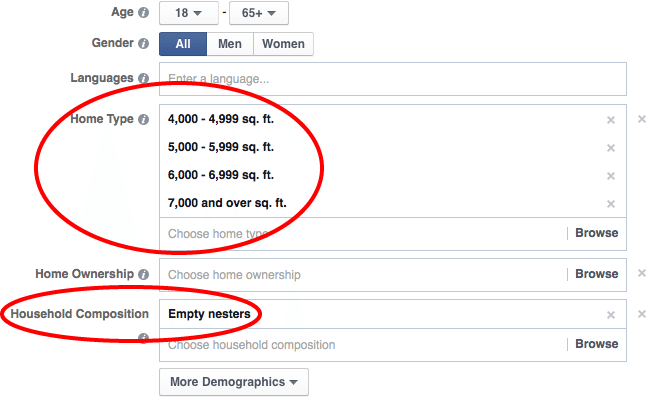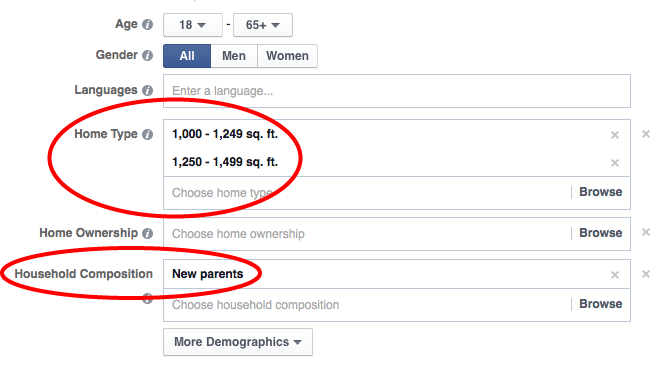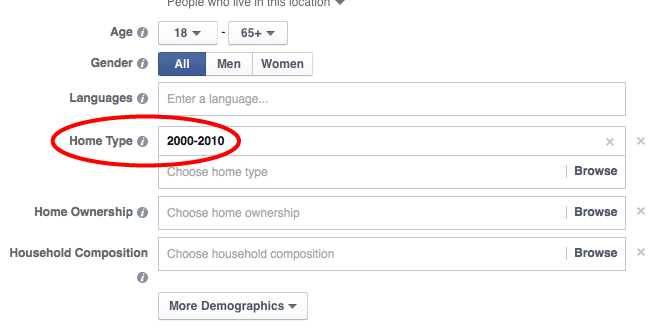Facebook has expanded the number of filters real estate agents can use to target ads at prospective clients — a move that could potentially help agents generate higher-quality leads from the social network.
Advertisers can now put their ads in front of consumers based on their home size, home age, property size, and more sophisticated filters relating to where they live and travel.
The new filters provide a “perfect way to introduce yourself and your service by laser-targeting homeowners in certain life stages,” said Travis Thom, founder of Leads2Listing, a service that helps agents get seller leads through Facebook ads.
Facebook ads typically capture leads for real estate agents or brokers by driving Facebook users who click on the ads to a website or landing page where they must register their contact information to use certain features, like listing search and home valuation tools or contact forms.
Real estate agents are underinvesting in this lead generation technique, according to a recent Inman survey.
Here are some ways that agents can leverage Facebook’s new ad-targeting filters to reach demographics that contain a disproportionate number of buyers and sellers, according to Leads2Listing.
1. Target empty nesters with big homes
Select “empty nesters” from Facebook’s menu of “household composition” filters and choose square footage and property size ranges that cover homes hosting empty nesters who may be thinking about downsizing.
2. Target new parents with small homes
Select the “new parents” filter from “household composition” and choose small home and property sizes to target families who may be looking to upgrade to bigger homes.
3. Target users whose homes were built from 2000 to 2010.
Estimates for the average amount of time that homeowners stay in their homes vary widely.
But they generally are between five and 15 years, meaning the owner of a home built between 2000 and 2010 may be more likely to sell than the owner of a home built before 2000 or after 2010.
“I would definitely target people who bought in a certain year,” said Amy Gerrish, a Phoenix-based real estate agent who generates leads from Facebook and tries to either convert them into clients for herself or sell them to other agents.
“We had two bottoms here in Phoenix — 2009 and 2011 — and the 2011 being the absolute bottom, those people have an amazing amount of equity to move up with.”
4. Target buyers visiting an area that encompasses a new construction development.
Input an address in the center of the housing development into Facebook’s ad-targeting tool and select the “People traveling in this location feature” to reach potential buyers who recently visited the area but live in homes located more than 100 miles away.
Search engine and Facebook ads provide the best return on investment among online lead sources included in a recent Inman survey, with leads generated by the two sources ranking as the only types to earn more ratings of “great,” “good” and “mediocre” collectively than ratings of “poor,” the survey found.
Yet agent respondents were twice as likely to say that they get paid leads from listing portals as they were to say that they get paid leads from Facebook or search engines.











